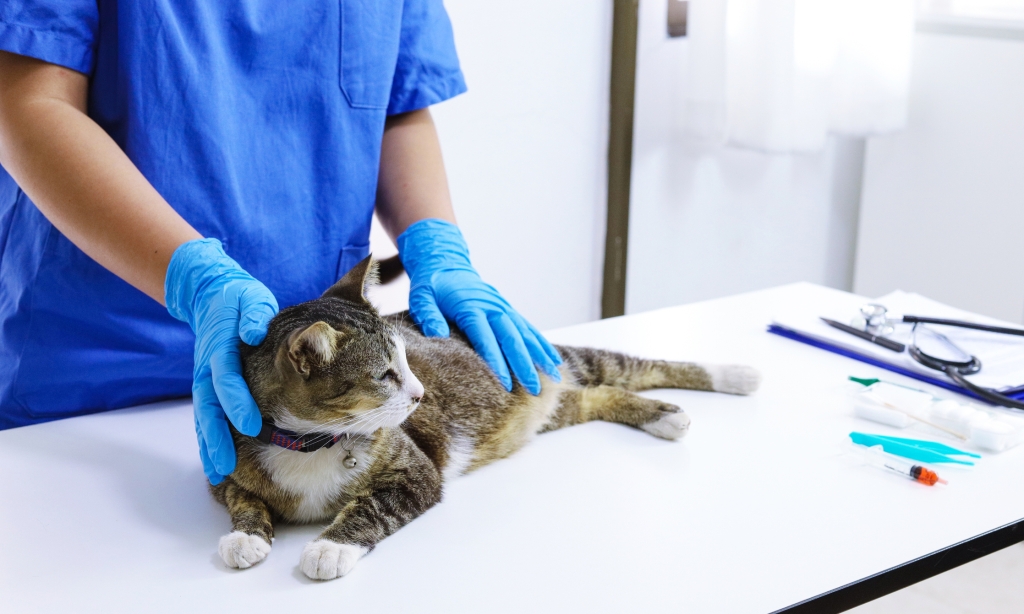
Practices reduce use of critically important antibiotic Cefovecin by 310%
Southwest CVS Small Animal Practices Run Programme To Eliminate Unnecessary Antibiotic Use
Southwest CVS small animal practices are running a programme to review how they prescribe antibiotics, with the aim of eliminating inappropriate or unnecessary use.
The practices are reviewing antibiotic prescribing using audit outcomes and evidence-based medicine, rather than relying on veterinarian preference. They aim to change their prescribing culture, adopt a case-by-case approach, and support vets in only using antibiotics where absolutely necessary.
They have initially identified the use of antibiotics in the treatment of cat bite abscesses (CBAs) as worthy of investigation. Cefovecin, a third-generation cephalosporin and critically important antibiotic, is often used in the treatment of CBAs.
As a first step, the practices first sought guidance from a dermatology specialist with an active research programme involving the study of antimicrobial resistance (AMR). This resulted in the development of a clinical guideline advising that if a cat has a discrete abscess, with no pyrexia (raised temperature) and no cellulitis, antibiotics are not required.
An eight-month clinical audit was then conducted, with the aim of measuring the effect of the new guideline. The practices treated patients with CBA’s with NSAIDS, lancing and flushing (if necessary), and cleaning of the abscess. Owners were advised to flush the affected area at home once daily. An antibiotic awareness leaflet was given to clients with a full dialogue on the clinical reasoning behind not prescribing antibiotics. Cats presented 5-7 days after treatment for a nurse re-examination.
A consultation template was created for both the vet at initial presentation and another for the nurse’s post treatment check, to gather standardised information. The measure of successful treatment was whether, on re-examination, the CBA site appeared free from infection and wound healing was evident. If the wound had not started to heal or if there was infection or pyrexia, the treatment was deemed to have failed and further treatment was provided.
Analysis of these results showed that of the 22 cats included in the audit, 19 (86%) did not need antibiotics to successfully treat the abscess. There was also a 32.6% reduction in the number of times critically important antibiotics were dispensed in the eight-month period after the audit started, compared with the previous eight months.
As a final step, the practices set themselves a target to reduce the use of Cefovecin by <0.25% each month. As a result, the incidence of using the critically important antibiotic Cefovecin was reduce from 155 injections to 50 injections a month over a year (a 68% decrease).
Dan Bates, Regional Director for CVS practices in the South West, said:
“We think, due to lack of confidence in treatment without antibiotics as well as client pressure or expectation, the profession tends to default to the prescribing of antibiotics.
However, this clinical audit has given our veterinary colleagues increased confidence in treating CBA’s without antibiotics. There has also been an improved client understanding in accepting treatment without antibiotics. Clients have also been positive when minimal intervention has been required, particularly as it eliminates the cost of antibiotics. This has had a positive impact on the vet-client relationship and trust in our practice.
Antimicrobial resistance is continuing to threaten the efficacy and treatment of an ever-increasing range of infections. So we hope that our CBA clinical audit outcome results will help to set a benchmark and shape clinical guidelines for the wider veterinary profession in this area.”
In May 2024, the Southwest group of CVS small animal practices was announced a RCVS Knowledge Antimicrobial Stewardship Champion for their work in reducing antibiotic use in CBA’s.
More from CVS UK Ltd
- Chestergates Veterinary Specialists launches Specialist Dermatology Service
- CVS launches Life Stage Assessment Clinical Improvement Project to champion pet wellness
- Chestergates Veterinary Specialists strengthens surgical team with appointment of Specialist Matthew Smith
- Precise imaging and unconventional fixation resolve challenging tarsal fracture
- CVS Farm Vets launches innovative Sheep Lameness Project to support UK farmers

 1 year ago
1 year ago  837 views
837 views
